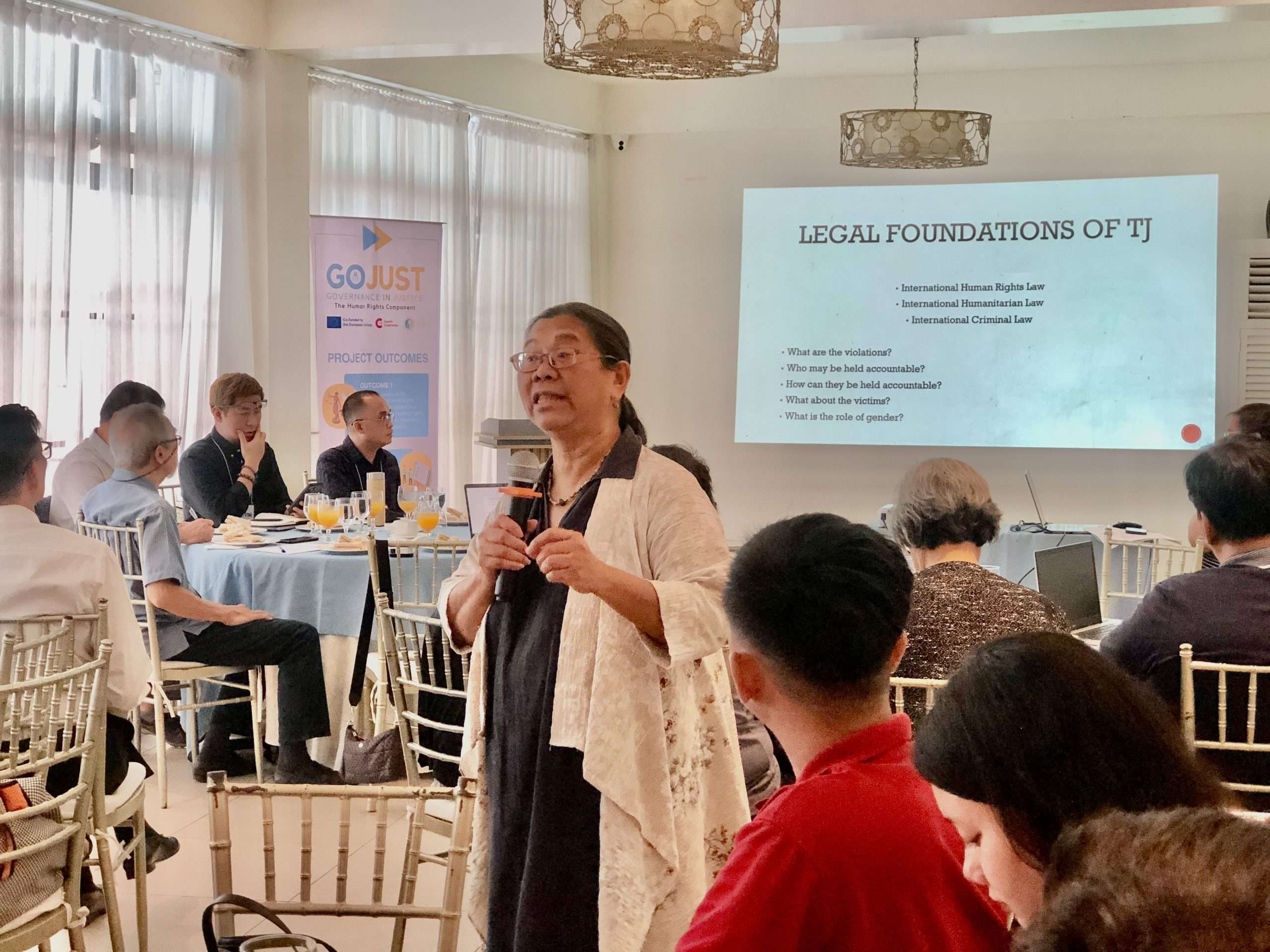
Robert Francis Garcia - Team Leader, GOJUSTII-HR Technical Assistance Team
The Philippines, a Southeast Asian archipelago, has a rich but tumultuous history, marked by periodic episodes of violence, reprisal, repression, and dissent. These early and recurrent cycles of atrocity and response have positioned the country as a critical forerunner in adopting ‘Transitional Justice’, a United Nations concept that encompasses ‘… processes and mechanisms societies employ to grapple with a legacy of large-scale past abuses, ensure accountability, serve justice, and achieve reconciliation’.
To foster this, the European Union (EU) and the Spanish Agency for International Development Cooperation (AECID) have collaborated on a human rights project, Governance in Justice II (GJII-HR), with Transitional Justice (TJ) as one of the focus areas, to provide institutional support to the Philippines’ Commission of Human Rights (CHR). The support comes in two critical forms: direct financial grants and technical assistance through a team of experts. At DT Global, we are supporting by providing a Technical Assistance Team (TAT).
The Commission on Human Rights Center for Crisis, Conflict, and Humanitarian Protection (CCCHP), in collaboration with DT Global’s Technical Assistance Team (TAT), held a Transitional Justice (TJ) Mainstreaming Workshop in Bacolod City, Negros Occidental, on May 28 and 29, 2024.
The two-day workshop focused on using TJ as a tool for achieving justice, accountability, and progress for the nation. Local government officials and civil society leaders took part in the event. Bacolod City was selected as the venue due to its relevance to the project's focus on addressing various human rights issues.
TJ remains a significant approach due to the Philippines’ turbulent history of dictatorship and repression during martial law (1972-1986), compounded by ongoing armed insurgencies. In the post-Ferdinand Marcos era, the country initiated specific measures akin to TJ. However, they were not fully labelled as such, but aimed to dismantle authoritarian legacies in the country.
Such efforts included drafting a new constitution to entrench robust human rights safeguards, reaffirming civilian control over the military, setting up proper checks and balances in governance, and safeguarding press freedom. These efforts remain critical to the success of this DT Global-backed project, and despite the challenges, they represent crucial strides towards achieving justice.
This is especially true given that the Philippines continues to struggle with numerous issues that warrant TJ’s application. Apart from the atrocities perpetrated during martial law, there are also those resulting from the communist insurgency, Moro insurgency, and, more recently, the war on drugs policy of the previous administration under President Rodrigo Duterte.
The latter has resulted in an estimated 30,000 cases of extrajudicial killings. This staggering number of victims clearly qualifies as ‘large-scale past abuses’ that demand a measure of accountability and closure, which is what TJ is all about.
For issues such as these, TJ prescribes four essential pillars: right to truth, right to justice, right to reparation, and guarantee of non-recurrence. More recently, a fifth pillar, memorialization, was added. The five pillars now serve as an ultimate guide to action in advocating TJ and undertaking measures under it.
The pillars are interdependent and mutually reinforcing. During the workshop, which featured former government and UN officials, TJ experts, and human rights advocates, there was a profound exploration of these pillars and their practical applications to achieve the project goals.
Through the CHR’s TJ Mainstreaming Workshop, it is hoped that the GJII-HR partners – EU, AECID, CHR, and DT Global – can significantly enhance the TJ discourse and its application not only within the Philippines but also globally.